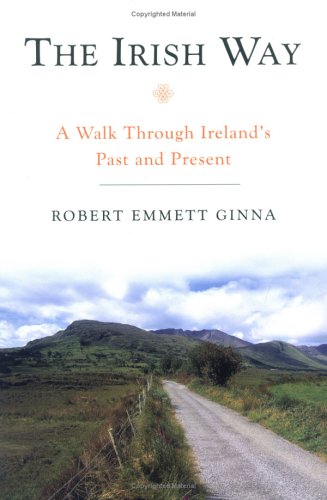With St. Patrick's Day upon us I have to toot the horn, or the uilleann pipes, for two books that every good son or daughter of Erin should know about--one that I published, one that I didn't.
The first is Jay P. Dolan's sweeping history The Irish Americans. It surprised me to learn, when I began talking to Jay about the book he was planning, that no general history of Irish-Americans had been written, at least for a trade audience, since the 1960s. Any field of historical research throws up new insights over such a span of time, but social history and ethnic history in particular have boomed in the past few decades. Jay, who had written pioneering works in this area, was an ideal author for the the topic. He drew on his own research and wove it together with the other recent scholarship in a richly colorful narrative.
The Irish Americans follows the Irish from their first arrival in the American colonies through the bleak days of the potato famine that brought millions of starving immigrants, right up to the election of JFK, the triumphant moment when an Irish American attained the White House. The book manages to evoke the ghastly ships crowded with men and women fleeing the potato blight; the backbreaking toil of Irish navvies digging the Erie Canal; vibrant life of Catholic parishes in cities like New York and Chicago; and the world of machine politics, where ward bosses often held court in the local saloon. It's a grand tapestry of the Irish experience in America, and I might add, the perfect gift for your Irish da, gran, or brother-in-law. Don't just take my word for it--the Wall Street Journal's excellent review is here.
If you'd rather read about the old sod itself rather than its diaspora, you might seek out a lovely, more personal book, The Irish Way: A Walk Through Ireland's Past and Present. Full disclosure: the author is my Irish (-American) da, Robert Emmett Ginna. A few years ago he walked across the whole island, north to south. To stroll across the Irish landscape is to travel through time, so his account becomes a mosaic in which encounters with history and encounters with a profuse variety of present-day Irish characters are interspersed. (Again, don't take my word for it. James Salter wrote, "Ginna takes you along with him into the ruined abbeys, the villages and towns, the great houses with their extraordinary histories, the talk-filled pubs, and, more than this, into the soul of the country.")
Pour yourself a Jameson's, or if it's not that hour, brew a cup of tea--in my family we ask for it "strong enough to trot a mouse across"--and settle in.


1 comment:
These books look excellent. Of course some of the Irish came in dribs and drabs for opportunity, like my mother's people. A lot of them went to England for the same reason.
I like what your father did. Chatting with people and getting a feel for it and it's history. This is part of an Amazon reivew of your father's book that struck a cord with me.
"Ginna shows how Ireland is changing today but how the past lies close to the surface everywhere."
I always got the feeling the past never dies in Ireland. Of course Faulkner would say, it's not even past, and I think he's right.
Thanks for sharing these. And Happy St. Pat's!
Post a Comment